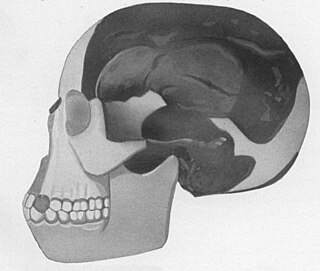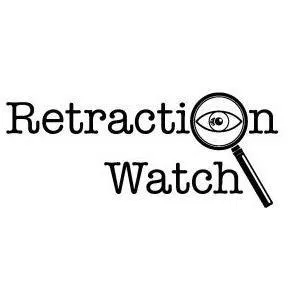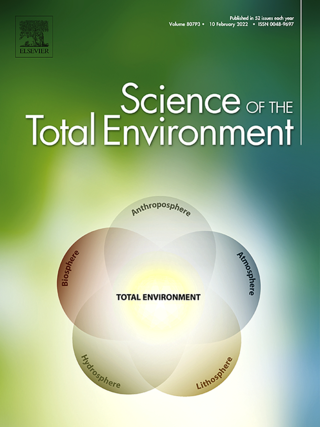
Scientific misconduct is the violation of the standard codes of scholarly conduct and ethical behavior in the publication of professional scientific research. It is violation of scientific integrity: violation of the scientific method and of research ethics in science, including in the design, conduct, and reporting of research.
In academic publishing, a retraction is a mechanism by which a published paper in an academic journal is flagged for being seriously flawed to the extent that their results and conclusions can no longer be relied upon. Retracted articles are not removed from the published literature but marked as retracted. In some cases it may be necessary to remove an article from publication, such as when the article is clearly defamatory, violates personal privacy, is the subject of a court order, or might pose a serious health risk to the general public.

Hindawi was a publisher of peer-reviewed, open access, scientific journals active in scientific, technical, and medical (STM) literature. It was founded in 1997 in Cairo, Egypt, and purchased in 2021 for $298 million by John Wiley & Sons, a large US-based publishing company.
MDPI is a publisher of open-access scientific journals. It publishes over 390 peer-reviewed, open access journals. MDPI is among the largest publishers in the world in terms of journal article output, and is the largest publisher of open access articles.
Journal of Physics: Conference Series (JPCS) is a peer-reviewed, open-access publication from IOP Publishing providing readers with the latest developments in physics presented at international conferences.
Scientific Research Publishing (SCIRP) is a predatory academic publisher of open-access electronic journals, conference proceedings, and scientific anthologies that are considered to be of questionable quality. As of December 2014, it offered 244 English-language open-access journals in the areas of science, technology, business, economy, and medicine.
Scientific Reports is a peer-reviewed open-access scientific mega journal published by Nature Portfolio, covering all areas of the natural sciences. The journal was established in 2011. The journal states that their aim is to assess solely the scientific validity of a submitted paper, rather than its perceived importance, significance, or impact.

Retraction Watch is a blog that reports on retractions of scientific papers and on related topics. The blog was launched in August 2010 and is produced by science writers Ivan Oransky and Adam Marcus. Its parent organization is the Center for Scientific Integrity, a US 501(c)(3) nonprofit organization.
Dipak Kumar Das was the director of the Cardiovascular Research Center at the University of Connecticut Health Center in Farmington and is known for research fraud. His work centered on the beneficial properties of resveratrol, which is found in red wine, but over twenty of his research papers have been since retracted.

OMICS Publishing Group is a predatory publisher of open access academic journals. It started publishing its first journal in 2008. By 2015, it claimed over 700 journals, although about half of them were defunct. Its subsidiaries and brands include Allied Academies, Conference Series LLC LTD, EuroSciCon LTD, Hilaris Publishing, iMedPub LTD, International Online Medical Council (IOMC), Longdom Publishing SL, Meetings International, Prime Scholars, Pulsus Group, Research & Reviews, SciTechnol, Trade Science Inc, Life Science Events, Walsh Medical Media, and IT Medical Team.
Frontiers Media SA is a publisher of peer-reviewed, open access, scientific journals currently active in science, technology, and medicine. It was founded in 2007 by Kamila and Henry Markram. Frontiers is based in Lausanne, Switzerland, with offices in the United Kingdom, Spain, and China. In 2022, Frontiers employed more than 1,400 people, across 14 countries. All Frontiers journals are published under a Creative Commons Attribution License.
Journal hijacking refers to the brandjacking of a legitimate academic journal by a malicious third party. Typically, the imposter journal sets up a fraudulent website for the purpose of offering scholars the opportunity to rapidly publish their research online for a fee. The term hijacked journal may refer to either the fraud or the legitimate journal. The fraudulent journals are also known as "clone journals". Similar hijacking can occur with academic conferences.
Bharat B. Aggarwal is an Indian-American biochemist. His research has been in the areas of cytokines, the role of inflammation in cancer, and the anti-cancer effects of spices and herbs, particularly curcumin. He was a professor in the Department of Clinical Immunology, Bioimmunotherapy, and Experimental Therapeutics at University of Texas MD Anderson Cancer Center in Houston, Texas.

Cell Biochemistry and Biophysics is a peer-reviewed scientific journal covering all aspects of the biology of cells, especially their biochemistry and biophysics. It was established in 1979 as Cell Biophysics with Nicholas Catsimpoolas as founding editor-in-chief, obtaining its current name in 1996. The journal is published by Springer Science+Business Media and the editor-in-chief is Lawrence J. Berliner.

Science of the Total Environment is a weekly international peer-reviewed scientific journal covering environmental science. It was established in 1972 and is published by Elsevier. The editors-in-chief are Damià Barceló, Jay Gan and Philip Hopke. According to the Journal Citation Reports, the journal has a 2021 impact factor of 10.753.
Cureus:Journal of Medical Science is a web-based peer-reviewed open access general medical journal using postpublication peer review. It is also the first academic journal which provides authors with step-by-step templates for them to use to write their papers. The journal's founding editors-in-chief are John R. Adler and Alexander Muacevic.
Tumor Biology is a bimonthly peer-reviewed open access medical journal covering clinical and experimental oncology. It was established in 1980 as Oncodevelopmental Biology and Medicine, obtaining its current name in 1984. It is owned by the International Society of Oncology and BioMarkers, of which it is the official journal. Originally published by Karger Publishers, it moved to Springer Science+Business Media beginning in 2010. In December 2016, the journal moved again, this time to SAGE Publications. The editor-in-chief is Magdalena Chechlinska. According to the Journal Citation Reports, the journal has a 2016 impact factor of 3.650.
The Journal of Alloys and Compounds is a peer-reviewed scientific journal covering experimental and theoretical approaches to materials problems that involve compounds and alloys. It is published by Elsevier and the editor-in-chief is Hongge Pan, Livio Battezzati. It was the first journal established to focus specifically on a group of inorganic elements.





